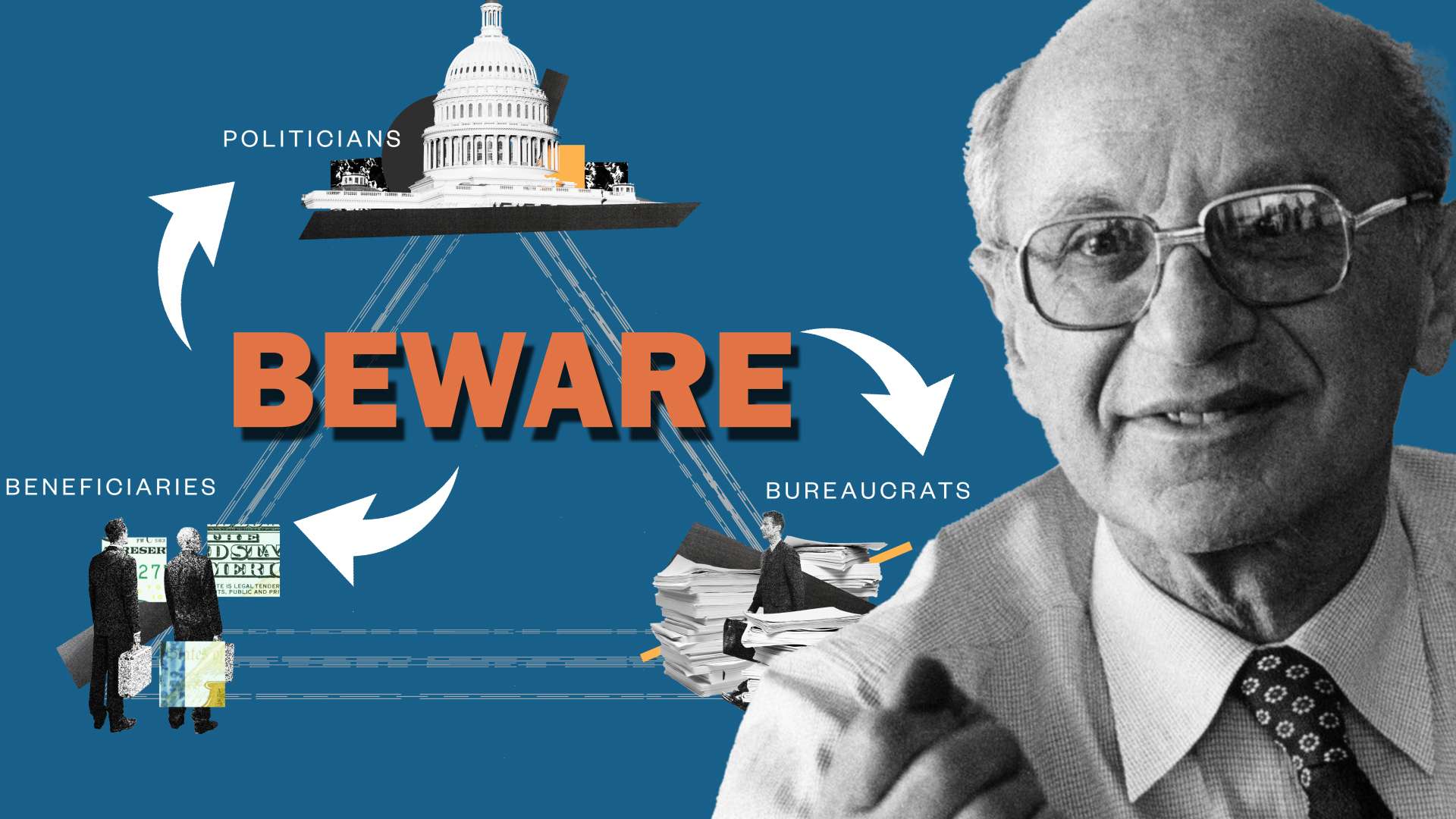Milton Friedman's Warning to DOGE

Taming the Beast: The Unending Battle Against Government Overreach
The Iron Triangle: A Symbiotic Relationship at Taxpayer Expense
Published in 1984, Milton Friedman's concept of the "Iron Triangle of Politics" remains eerily relevant today. It identifies the key players who perpetuate wasteful government spending: Beneficiaries, Politicians, and Bureaucrats—a self-serving trio locked in a symbiotic embrace.
Beneficiaries, often interest groups and connected industries, reap the rewards of government programs at the expense of the dispersed taxpayers. Think of subsidized farmers benefiting from the Farm Bill, a prime example of this dynamic. As Friedman pointed out, taxpayers often remain unaware of these costs while beneficiaries certainly aren't.
Politicians: Serving Special Interests, Not the People
Ideally, politicians would be responsive to their constituents. However, the Iron Triangle shows how they often become beholden to the very interest groups contributing to their campaigns. This leaves the bureaucrats, the third point of the triangle, in a position of power, distributing taxpayer money and expanding their influence through ever-growing departments.
Bureaucracy: A Self-Perpetuating Machine
Friedman astutely described bureaucracy as proceeding "by laws of its own." This rings true even today. Elon Musk echoes this concern, warning that unchecked bureaucratic growth can erode democracy, potentially leading to national bankruptcy.
"If the people cannot vote and have their will be decided by their elected representatives…then we don't live in a democracy, we live in a bureaucracy.” - Elon Musk
DOGE: A Noble Effort, But is it Enough?
Efforts to dismantle the Iron Triangle, like the DOGE initiative (formerly the U.S. Digital Service), focus on streamlining and automating the federal workforce. While a good first step, these "thousand cuts" often only address superficial inefficiencies, reminiscent of the Reagan era’s struggles with symbolic, rather than substantial, spending cuts.
The Need for Radical Reform
True progress demands abolishing entire federal agencies, a bold move championed by Friedman. While some administrations have attempted to cut agencies like USAID and the CFPB, or even the Department of Education, significant reductions require Congressional action – a hurdle often too high to clear.
Friedman's Vision: A Focused and Effective Government
Friedman envisions a government focused on its core responsibilities: national defense and protecting citizens from harm. He argues that by shedding unnecessary functions, the government can perform these core duties more effectively.
“One function of government is to protect the country against foreign enemies—national defense. A second function of government, and one which it performs very, very badly, is to protect the individual citizen against abuse and coercion by other citizens….I believe that the government performs that function very ineffectively because it’s doing so many things that it has no business doing.” – Milton Friedman
Beyond Tech Support: The Need for a Political Movement
While initiatives like DOGE aim to curb spending, they fall short of achieving the necessary $2 trillion in cuts. Even with these efforts, the national debt continues to climb, fueled by programs like Social Security and Medicare, which remain largely untouched. This bipartisan issue requires a fundamental shift in mindset, a movement demanding enduring structural reforms, not just technological tweaks.
Friedman emphasizes the importance of consensus and persuasion, rejecting dictatorial approaches. True change, he believes, requires convincing the public of the need for reform.
The Future of the Fight
Breaking the Iron Triangle demands more than executive orders and agency initiatives; it requires a powerful political movement. It requires a leader with the political will and a public mandate to enact sweeping reforms. The battle against government overreach is an ongoing one, and its success depends on the sustained engagement of citizens determined to build a more efficient and effective government.